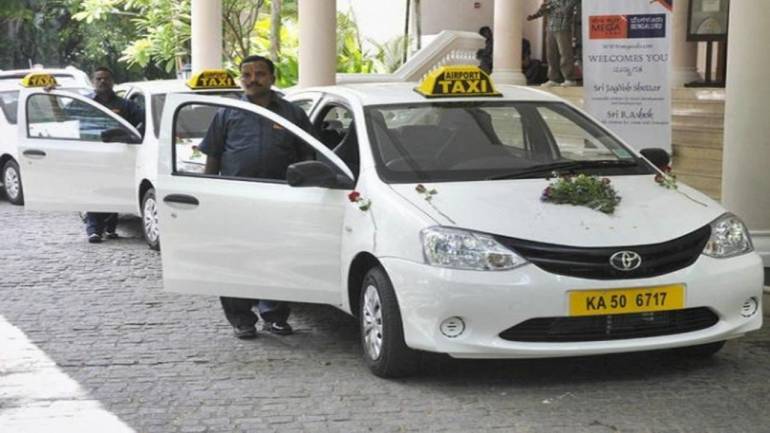Private cars may soon be allowed to operate as taxis and prospects of ridesharing through cab aggregators such as Uber and Ola may widen across the country as a high-level panel has recommended to liberalise taxi permit norms.
Private cars may soon be allowed to operate as taxis if recommendations by a high-level panel to liberalise taxi permit norms get approved.
The motive is to promote ride-sharing by private cars using aggregators such as Ola and Uber to check pollution and cut the number of vehicles plying on Indian roads.
“Taxi permits may be liberalised so that private cars can easily be converted and used as taxis by service aggregators,” stated the recommendations report, reviewed by the Economic Times.
Also read — Passenger vehicle sales to grow 9-10% in FY'18: ICRA
Passenger vehicle sales segment grew by 9.23 percent in India, crossing the three million mark for the first time in FY17. Considering the upbeat consumer sentiment across rural and urban centres, the Society of Indian Automobile Manufacturers (SIAM) expects passenger vehicle sales to grow at the upper end of its previous estimate of 7-9 percent in 2018.
In terms of air pollution, India’s cities rank among the worst polluted in the world. The country is facing an explosion in the number of vehicles on road that is deteriorating the air quality, which take a toll on public health.
Also read — Economic Survey 2018: Report expresses concern over air pollution
The panel, including Niti Aayog officials and representatives of various ministries, stressed that carriers should ensure passenger's safety under such a regime and address the problems with proper policy initiatives.
Referring to the present scenario where there are limited aggregator services available in the market, the committee warned that it could lead to an oligopoly.
“These concerns need to be addressed through policy dialogue with all concerned stakeholders,” a top government official told the paper.
Cab aggregator companies are likely to welcome the move as it would allow them to take more than one passenger at a time. Earlier, Uber global CEO Dara Khosrowshahi had said his company was supportive of private car-sharing.
“We think that it (private car-sharing) takes advantage of the assets that are already here on the road. If you look in Delhi, 70 percent of the cars are driving with one passenger, and we think private car-sharing opens up the opportunity for drivers for a much broader base and it allows Indian cities and governments to make better use of the assets that are on the ground and hopefully can be a positive factor in solving congestion,” Khosrowshahi had told the paper.
Ironically, the cab aggregators — Ola and Uber — are on strike in Mumbai and similar strikes are being planned in Delhi and Bengaluru demanding higher earnings and incentives.
Also read — Ola-Uber drivers suffer due to loss of pay while the firms spar with unions
Other recommendations include the banning of high-polluting vehicles, such as pre-BS-III ones, during peak pollution periods such as the three-month winter season when the capital is worst hit.
The task force has also recommended to make the use of public transport mandatory for government officials on specific days of the week and levy high parking fees on key roads to control congestion.
Also read — Ola, Uber drivers’ strike hits commuters in Mumbai as surge prices go up 3x
The government think tank had set up four task forces in July 2017 to prepare a roadmap for reducing pollution levels in the country.